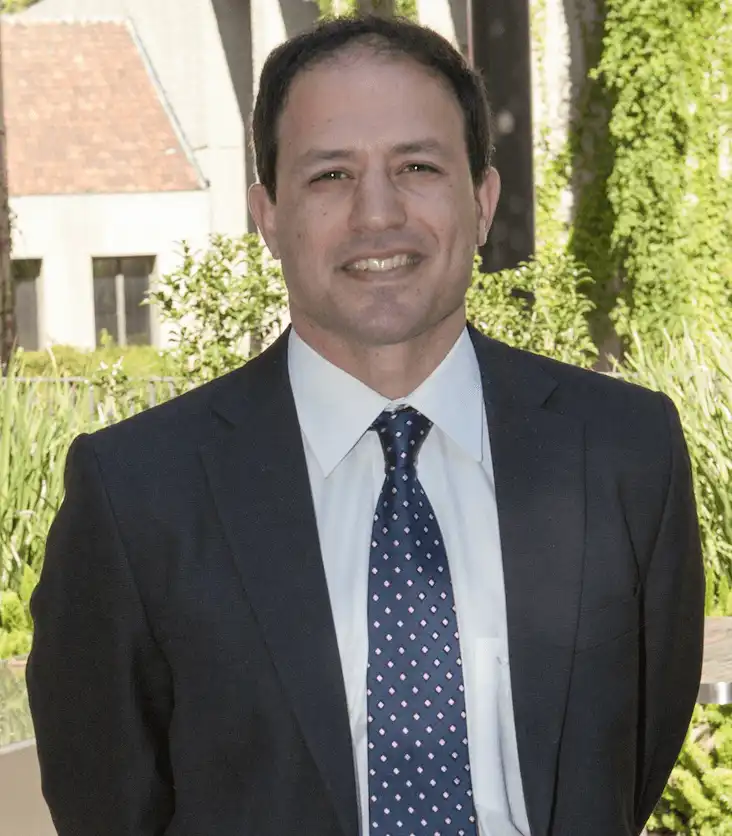Home>Evan Epstein: Silicon Valley by way of Sciences Po
17.07.2020
Evan Epstein: Silicon Valley by way of Sciences Po
Evan Epstein is an expert in corporate governance, a field he describes as “like peeling an onion, once you get into this, there are all of these different layers that you have to dig into.” It is clear that Epstein’s journey has also been multilayered, and that his semester studying abroad at Sciences Po was just one of the many experiences that he has fully dug into.
Epstein grew up in Chile, where he attended French primary and secondary schools, so when he got the chance to study abroad during law school, he was eager to “explore and go to Europe and study at Sciences Po.” Although he studied abroad for only six months, Epstein enjoyed both the academic experiences, especially the famous “méthode” for thinking about writing, and the social experiences of Sciences Po, and he still remains friends today with the other students he met playing rugby. He looks back fondly on the small apartment where he lived close to Sciences Po on Rue de l’Université, the café experience, and the fun of exploring Paris.
After Sciences Po, Epstein stayed in Paris for six months working at a law firm, before returning to Chile to work at another law firm and then completing a masters at Stanford. Ever since, he has been working on corporate governance issues in the United States. Epstein’s multifaceted career has included a stint as the executive director at Stanford’s research center for corporate governance, getting involved in the tech ecosystem, and launching his own corporate governance advisory firm. Currently, Epstein serves as the executive director of the Center for Business Law at the University of California, Hastings, where he also teaches a seminar. He has also remained a professor in Chile and teaches a corporate governance class every year.
Sciences Po for Epstein “was a very international work environment.” He describes how the diversity he encountered “did help in my personal development and personal growth” and “did certainly open my mind to different issues.”
Epstein shares a few thoughts on the international questions of corporate governance. He contrasts the French board of directors, whose members are typically tightly controlled and very close to the CEO, with the situation in the United States, where boards of directors tend to adopt a more independent approach. In Europe, employees play a much bigger role in corporate governance. “Some French companies have representatives of employees on boards, which is very different to the United States,” he says. Changes, including the rise of activist investors, mean that boardrooms and corporate governance issues are always evolving and transforming. Epstein is also particularly interested in the question of diversity of boards and how leadership can set an example from the top down. In Silicon Valley, Epstein deals with a specific subset of corporate governance issues involving venture-backed startup companies, including conflicts and other governance challenges. “It's a very different setting than your classical, large New York Stock Exchange traded company,” he adds.
Thanks to his time spent at Sciences Po, Epstein has remained interested in issues of French business and stays intellectually drawn into the landscape of French and European corporations. His international experiences have demonstrated to him that “we have global companies and we have to think about it from a global perspective.” This point of view is largely inspired by his diverse community. “My international interest,” he thinks, “is due to knowing people.”
Epstein’s own international experience taught him that “in people’s development spending a year abroad is great and Sciences Po is at its core made that way.” For current Sciences Po students, Epstein advises that they “should take advantage of these opportunities.” For Sciences Po students and young graduates interested specifically in corporate governance, he encourages them to think about boards and governance and to keep asking broader questions, like “What is the purpose of corporation in society?” and “What’s the role of the corporation vis-à-vis its customers, employees, suppliers, community, environment and shareholders?”
Working from home has not stopped Epstein’s creative energies. He recently launched his new podcast, Boardroom Governance with Evan Epstein, where he interviews leading corporate governance experts, such as Heidi Roizen and Professor Mervyn King, on a weekly basis.
For Epstein, Sciences Po left him not only with lifelong friends, but with an intellectual curiosity for global perspectives. A global perspective “is one great aspect of Sciences Po, which is structurally very international,” he says. People have “conversations about very broad issues that affect people all over the world.”
